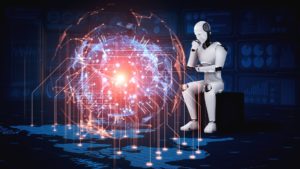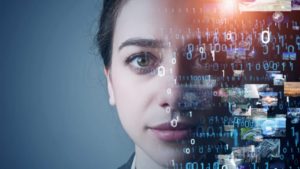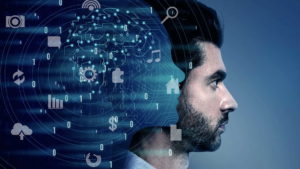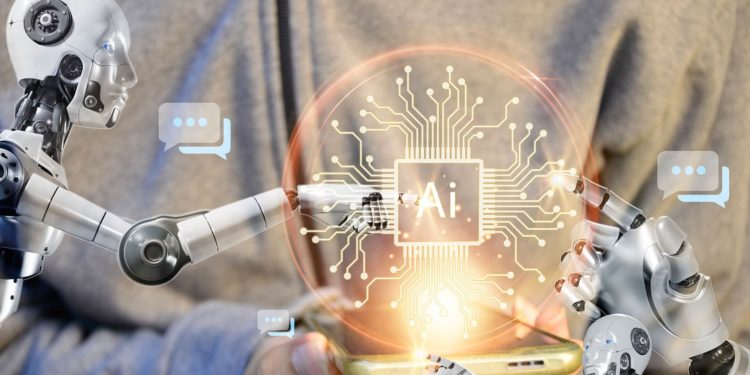To regulate artificial-intelligence universe is to set the direction for a morally and securely stable future. Artificial intelligence is one of the biggest technological revolutions of the modern age and it is incredibly altering the course of actions and events. However, Careful Artificial-Intelligence regulation is also necessary to ensure its future because it can work beyond boundaries and limits.
When you can use artificial intelligence to write, speak, make videos and images, and a lot of things that are impactful, then you can guarantee that it can be used to do extremes. Governance for a more sustainable and safe technological future, the essential actions and factors to be taken into account when regulating AI, to create a fair and creative technological environment all come into the regime of Artificial-Intelligence regulations.
Moreover, the rapid advancement of artificial intelligence has made it vital to make strict laws to guarantee the ethical and safe application of this technology. Certainly, there are difficulties to Regulate Artificial-Intelligence as decision-makers struggle to manage this powerful technology.
The question of whether artificial intelligence can be effectively regulated to safeguard our future emerges.
Now if anyone thinks about why it emerged then the simple answer is that artificial Intelligence is quickly becoming a necessary component of our modern society, changing entire industries, increasing productivity, and completely shifting the way we work and live. Concerns regarding the potential hazards, ethical consequences, and societal effects of this technology have grown as it develops.
When something is that powerful and impact, even in technology, its control and regulation are a must.
The questions about Artificial-Intelligence regulations security, ethics, and the law are genuine. It’s important to keep a balance between encouraging innovation and guaranteeing appropriate use.
The Necessity To Regulate Artificial-Intelligence

Since AI has become a leading part of the world, ensuring ethical AI systems and rules of Artificial Intelligence have the capacity to make choices that have a significant impact on people and society as a whole. The future of AI needs to be rooted in the timeless values we all hold. In the creation of AI, ethical considerations including prejudice, discrimination, and justice are vital.
Frameworks for regulations of Artificial Intelligence are necessary to uphold moral principles. AI depends on data, hence data protection is essential. To safeguard people’s rights, strict data privacy regulations should be part of Artificial-Intelligence policies and legislation. The following are the main areas to be valued for this to Regulate Artificial-Intelligence:
-
Ethical Guidelines and Frameworks
- If we define this concept for Artificial-Intelligence regulations, creating a set of values and regulations that direct the creation and use of Artificial Intelligence technology in a way that supports moral standards is the goal of ethical frameworks and guidelines in the field.
- Figuring out which uses of AI are morally righteous and consistent with societal norms is also important. This includes putting restrictions on the application of AI in scrutiny, face recognition, and other potentially invasive fields.
- Moreover, it is important to ensure that the internal logic of artificial intelligence systems can be comprehended and interpreted. This openness raises trust and makes it possible for stakeholders to understand the decision-making process used by AI systems.
- Identifying and fixing biases in Artificial-Intelligence systems to avoid discriminatory results is another important thing. To Regulate Artificial-Intelligence, locating and eliminating biases in algorithmic decision-making processes and training data.
-
Legal Structures and Adherence
- This Artificial-Intelligence regulation involves creating a body of legislation and rules to control the creation, application, and utilization of Artificial Intelligence technologies. This involves dealing with concerns including liability, privacy, data protection, and intellectual property.
- Implementing procedures to guarantee obedience to existing legal frameworks is known as compliance. This could involve using certifications, audits, and other methods to make AI systems and their users obey the law in Artificial-Intelligence policies.

-
Global Cooperation and Guidelines
- Acknowledging that Artificial Intelligence technologies cut across national boundaries and that international cooperation is necessary to establish a single Artificial-Intelligence regulation framework.
- Creating uniform policies and benchmarks for the creation and application of AI is a wise act. This encourages collaboration, makes information sharing easier, and guarantees a unified and well-coordinated approach to AI governance globally.
-
Accountability and Oversight
- Establishing mechanisms to keep an eye on and to Regulate Artificial-Intelligence activity is a sign of strong oversight. This could involve setting up organizations or regulatory bodies whose job it is to supervise the advancement and application of artificial intelligence technologies.
- To Regulate Artificial-Intelligence measures, the Accountability of Developers and Users involves Making AI developers and users responsible for the moral and legal consequences of their systems. Handling any unfavorable effects or misuse of AI involves putting accountability frameworks and audit procedures in place.
-
Public Education and Awareness
- This involves Ensuring that the general public is aware of artificial intelligence (AI) technology, its possible applications, and any societal consequences.
- Educating People by Putting in place programs that enable people to comprehend the moral issues related to artificial intelligence. Promoting public involvement in conversations around AI regulation and policy formulation is one way to do this.
- Shaping Policy by Facilitating educated public discussion to support the creation of policies that reflect the values and preferences of society.
What potential Difficulties Come with regulations of Artificial Intelligence?

There are potential consequences and complexities to Regulate Artificial-Intelligence. Because AI is dynamic and constantly changing, regulating it presents numerous obstacles and issues. Let us understand separately,
- Technological Pace is widely seen in the modern age and the same goes for artificial intelligence. As AI technologies develop swiftly, regulatory frameworks find it difficult to keep up with the speed of innovation.
- Worldwide Consistency could also be an issue. Reaching a consensus on Artificial-Intelligence policies and legislation on a worldwide scale is difficult since different nations may have different governance approaches, beliefs, and goals.
- Ethical Considerations are another different thing in Artificial-Intelligence regulation. Since ethical behavior can be viewed differently in different countries and societies, it might be difficult to establish generally accepted ethical standards for AI.
- It can be difficult to guarantee transparency and explainability in AI systems, especially when dealing with complex algorithms. It is essential to create guidelines for users and regulators to understand AI decision-making to Regulate Artificial-Intelligence.
- Allocating resources and experience to effectively regulate the fast-expanding and diversified AI field may pose issues for governments and regulatory agencies.
- The Changing Nature Of Artificial Intelligence is another factor to Regulate Artificial-Intelligence. AI is dynamic and constantly evolving in terms of technology. Laws need to be adaptive and flexible to keep up with the quick development of Artificial Intelligence. We as a society need to find ways to develop regulations that can adapt and evolve as AI technologies change. With time there occur changes, so it would be incredible to make it adaptive.
- Artificial-Intelligence regulation Is A Global Issue. AI is borderless. Global businesses and research organizations are assisting in its growth. To stop regulatory arbitrage, international borders must be regulated using a unified strategy.
What Are the Possible Regulations for Artificial Intelligence?

Since regulations of AI is a necessary aspect, here are the things to consider,
Openness and Explicitness
AI systems may be required by regulations to be understandable and transparent. The makers should ensure that AI systems provide explanations for their decisions, particularly when they impact human lives.
Accountability Frameworks
It is crucial to establish distinct lines of responsibility to Regulate Artificial-Intelligence. Determining the roles and duties of AI creators, users, and regulatory agencies may fall under this. Accountability is a key to ensuring AI benefits humanity.
Sector Cooperation
It is essential to bring together stakeholders from industry, academia, and civil society while creating rules for regulations of Artificial Intelligence. Guidelines, standards, and best practices can result from collaboration. AI researchers need to go beyond personal interests and collaborate for responsible AI.
The Ending Notes
It is both possible and essential to regulate artificial intelligence to ensure that mankind as a whole benefit from it in the future.
The regulation of AI continues to be a dynamic and continuous concern in this era of fast technological change. Our approach to regulations of Artificial Intelligence needs to be flexible and forward-thinking as we work to safeguard the future.
We ought to be asking ourselves, what sort of world we want to live in. It is our duty to acknowledge how AI is affecting society and to take steps to guarantee a safer and better future.
Another important thing here is the users should and must be watchful and practical in addressing important issues and problems surrounding artificial intelligence. By working together, we can ensure that everyone has a safe and moral future while still utilizing AI’s amazing potential.
All things considered, regulations of Artificial Intelligence are a difficult but vital task.
We are in charge of AI’s future. Instead of trying to control it, let’s sensibly Regulate Artificial-Intelligence it such that it benefits humanity.
The thing is how can we make sure that the choices we make now will help shape a future in which artificial intelligence is in line with human values and advances society?
Cooperation, moral considerations, and public involvement are critical in the effort to Regulate Artificial-Intelligence. We can only ensure a future where AI improves society overall by working together.












